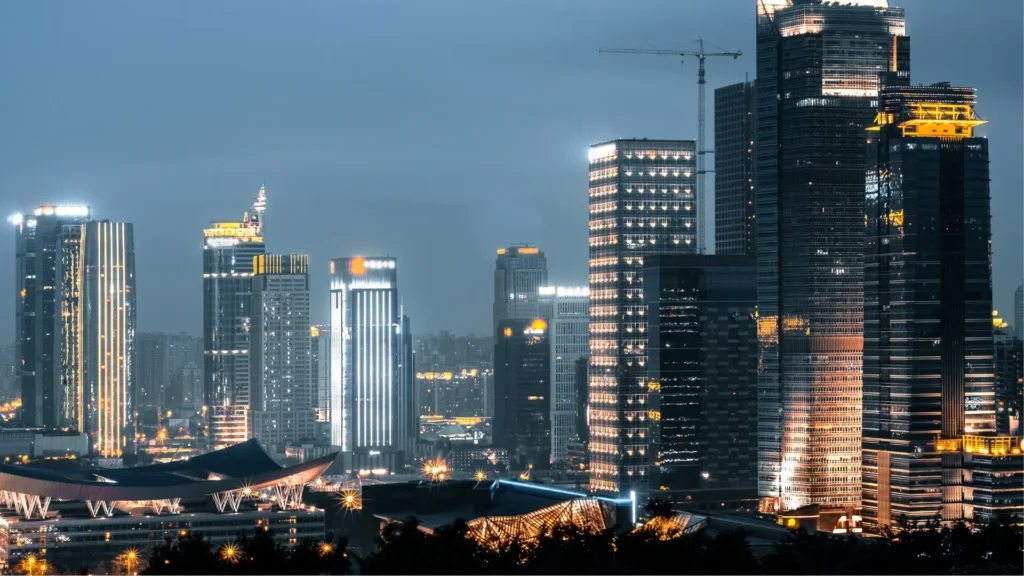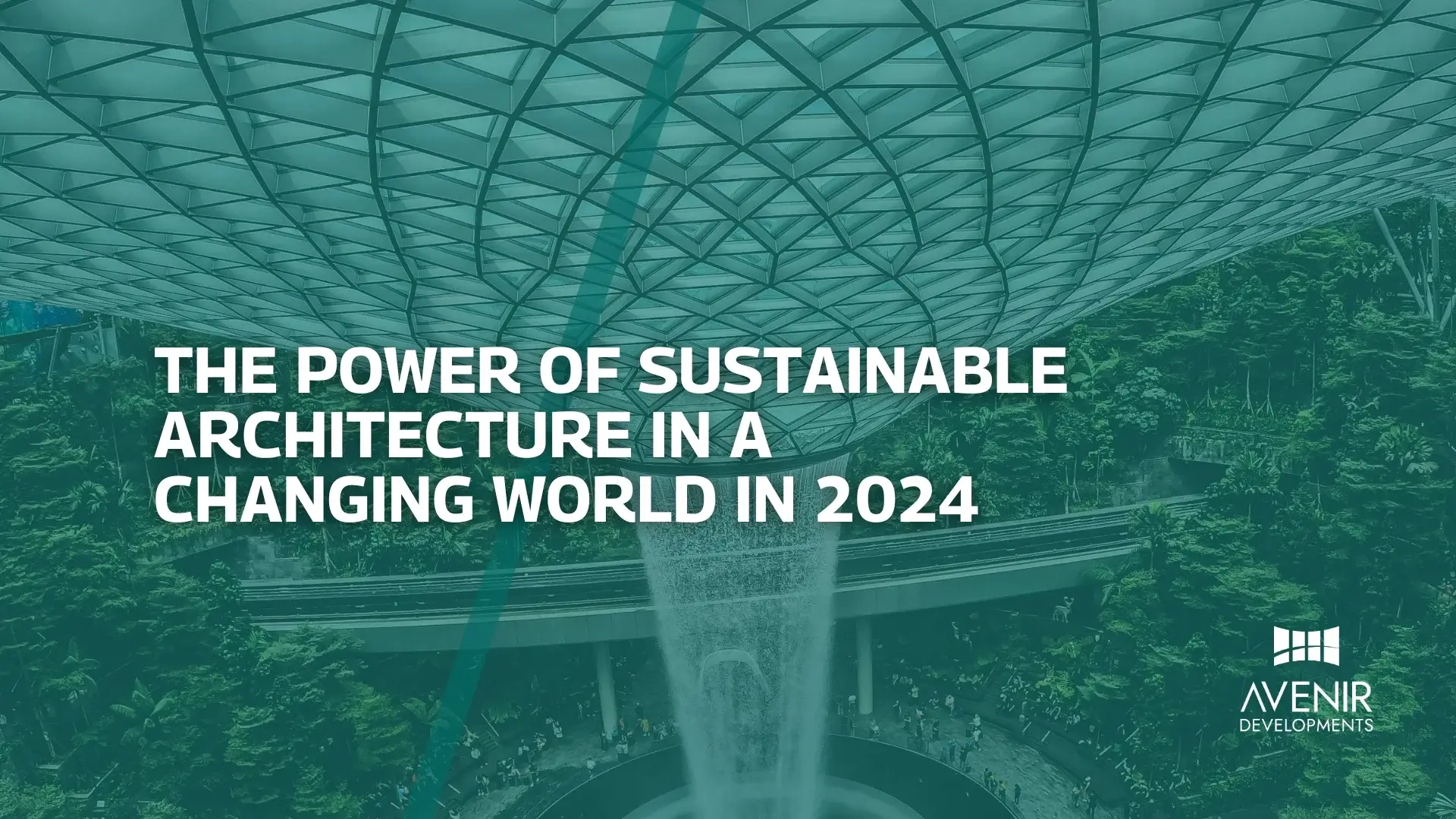Pakistan Real Estate has grown exponentially in the last 3 decades. With mushroom growth of housing schemes, following the footsteps of Bahria Town, the concept of selling plots soon became the go-to plan in Pakistan real estate.
Picture this: I’m standing on the bustling streets of Shanghai, surrounded by towering skyscrapers that seem to touch the clouds. The energy is palpable, the ambition contagious. This isn’t just a city; it’s a testament to China’s meteoric rise in real estate development. Having spent years traveling and living in different corners of the globe, from the vibrant streets of Dubai to the historic avenues of London, I’ve seen firsthand how real estate shapes economies and lifestyles. But China’s transformation, especially over the past few decades, is nothing short of extraordinary.
Now, back on home ground in Lahore, Pakistan, I can’t help but draw parallels. Our nation is on the cusp of its own real estate renaissance, and the lessons we can learn from China’s success story are invaluable. As an experienced property developer and an avid blogger, I’m passionate about sharing these insights. So, buckle up as we embark on a journey to unlock real estate success, exploring seven game-changing strategies that Pakistan real estate can learn from China’s remarkable real estate boom. Whether you’re an investor, a homeowner, or simply curious about the future of our cities, this is a story you won’t want to miss.
The Rise of Giants: China’s Real Estate Boom and Pakistan’s Potential
China’s real estate boom is a tale of unprecedented growth and transformation. From humble beginnings in the late 1970s, following economic reforms, China’s real estate sector has evolved into a global powerhouse. Cities that were once sleepy towns have morphed into bustling metropolises, complete with gleaming skyscrapers, modern infrastructure, and thriving communities.
Key milestones in China’s real estate evolution
- 1978: China launches economic reforms, paving the way for private property ownership and real estate development.
- 1990s: Rapid urbanization and economic growth fuel a surge in demand for housing and commercial spaces.
- 2000s: China’s real estate market experiences exponential growth, attracting massive investments and driving GDP.
- 2010s: While growth continues, concerns about oversupply and affordability emerge.
- Present Day: China’s real estate market is maturing, with a focus on sustainability, innovation, and meeting diverse housing needs.
The significance of China’s real estate boom
China’s real estate sector is not just about buildings; it’s a catalyst for economic growth, job creation, and improved living standards. It has played a pivotal role in lifting millions out of poverty and creating a thriving middle class. The sector’s impact extends beyond China’s borders, influencing global markets and shaping urban development trends worldwide.
Data and statistics
- The real estate sector contributes approximately 29% to China’s GDP.
- Over 80% of Chinese households own their homes, a remarkable achievement considering the country’s large population.
- China’s real estate market is the largest in the world, valued at trillions of dollars.
Pakistan’s potential
While Pakistan’s real estate market is at a different stage of development, it holds immense potential. With a growing population, rapid urbanization, and a burgeoning middle class, the demand for housing and commercial spaces is on the rise. However, we need to learn from China’s successes and challenges to create a sustainable and inclusive real estate sector that benefits all Pakistanis.
Trends and Developments: Pakistan’s Real Estate Landscape in the Spotlight
Pakistan’s real estate market is currently experiencing a dynamic phase, fueled by a confluence of factors. Let’s delve into the latest trends and developments that are shaping the landscape:
1. Rise of Vertical Living: With limited land availability in major cities, vertical developments like high-rise apartments and condominiums are gaining traction. These projects offer a more efficient use of space and cater to the needs of urban dwellers seeking modern amenities and convenience.
2. Government Initiatives: The government is playing a proactive role in promoting real estate development through initiatives like the Naya Pakistan Housing & Development Authority (NAPHDA). This program aims to address the housing shortage by providing affordable housing solutions and incentivizing private sector participation.
3. Infrastructure Development: The China-Pakistan Economic Corridor (CPEC) is a game-changer for Pakistan’s real estate sector. Infrastructure projects like highways, roads, and ports are enhancing connectivity and opening up new areas for development, particularly in Gwadar.
4. Digital Transformation: Pakistan real estate sector is embracing technology, with online property portals, virtual tours, and digital marketing becoming the norm. This shift is making property transactions more transparent and accessible to buyers and sellers alike.
5. Growing Investor Interest: Both domestic and foreign investors are showing keen interest in Pakistan’s real estate market. The stable political environment, economic reforms, and potential for high returns are key to attracting investments in various segments, including residential, commercial, and industrial properties.
6. Sustainable Development: There has to be a growing emphasis on sustainable and eco-friendly real estate projects. Developers should incorporate green building practices, energy-efficient technologies, and water conservation measures to create more sustainable and resilient communities.
7. Changing Consumer Preferences: Buyers are becoming more discerning, seeking properties that offer not just shelter but also a lifestyle. Amenities like community spaces, fitness centers, and green areas are increasingly sought-after features. Customers are more aware and ask relevant questions from the developers before making the purchase.
Your Questions Answered: FAQs on Pakistan’s Real Estate
Let’s address some of the most common questions people have about the Pakistan real estate market:
Q1: Is it a good time to invest in Pakistan’s real estate?
A: Yes, it can be. The market is showing positive signs of growth, with increasing demand and various government initiatives aimed at boosting the sector. The State Bank of Pakistan has reduced the interest rate by 1.5% earlier this month, which would encourage investment in Pakistan real estate. Affordable housing projects like NORA Residences are sure to generate genuine return on investment. However, it’s crucial to conduct thorough research, understand market dynamics, and seek professional advice before making any investment decisions.
Q2: Which cities in Pakistan offer the best real estate investment opportunities?
A: Major cities like Lahore, Karachi, and Islamabad are traditionally considered prime locations for real estate investment due to their economic activity, infrastructure, and population growth. However, emerging cities like Gwadar and Faisalabad are also attracting attention due to their development potential.
Q3: What are the risks associated with investing in Pakistan’s real estate market?
A: Like any investment, real estate comes with risks. These include market volatility, regulatory changes, and potential delays in project completion. It’s essential to diversify your portfolio, invest in reputable projects, and stay informed about market trends to mitigate these risks.
Q4: What are the legal requirements for foreigners to invest in Pakistan real estate?
A: Foreigners can invest in Pakistani real estate, but there are certain legal requirements and procedures to follow. It’s advisable to consult with legal and financial experts to ensure compliance with local regulations.
Q5: How can I find reliable real estate agents and developers in Pakistan?
A: Look for established agencies with a good track record and positive client testimonials. You can also check online property portals like Zameen.com and Graana.com, which list verified agents and projects. Additionally, seek recommendations from friends, family, or colleagues who have experience in the Pakistani real estate market. Reliable Property developers like Avenir Developments are playing a key role in Pakistan real estate market by developing projects which cater to the needs of Pakistan real estate.
Q6: What is the average return on investment (ROI) for real estate in Pakistan?
A: The ROI can vary significantly depending on the location, property type, and market conditions. However, historical data suggests that real estate in Pakistan has generally offered good returns over the long term, outperforming many other investment options in Pakistan. This is also because other business avenues in the country are not very promising, as per World Bank’s report, Pakistan ranks 180th in the world with regards to ease of doing business.

Lessons Learned: 7 Strategies Pakistan Can Adopt from China’s Real Estate Boom
Having witnessed the remarkable transformation of China’s cities and studied their real estate strategies, I’ve identified seven key lessons that Pakistan can adapt to accelerate its own real estate success:
- Master Planning and Zoning: China excels at long-term urban planning. Cities are designed with designated zones for residential, commercial, and industrial development. This ensures efficient land use, minimizes congestion, and creates harmonious living environments. Pakistan real estate can benefit from adopting a similar approach, creating well-planned cities that cater to the needs of residents and businesses alike.
- Infrastructure Investment: China has heavily invested in infrastructure, building modern roads, railways, airports, and ports. This has not only facilitated economic growth but also enhanced the value of real estate in connected areas. Pakistan’s focus on infrastructure projects like CPEC is a step in the right direction, but continued investment is crucial for unlocking the full potential of our cities.
- Affordable Housing Solutions: China has implemented various policies to make housing more affordable for its citizens, including government-subsidized housing, rent control measures, and incentives for developers to build affordable units. Pakistan real estate can learn from these initiatives to address its housing shortage and ensure that housing is accessible to all income levels.
- Technology Adoption: China’s real estate sector has embraced technology, from online property platforms to smart home solutions. This has streamlined transactions, improved transparency, and enhanced the overall customer experience. Pakistan’s real estate industry should continue to leverage technology to stay competitive and meet the evolving needs of buyers and sellers.
- Attracting Foreign Investment: China has actively sought foreign investment in its real estate sector, which has played a significant role in its growth. Pakistan can also benefit from attracting foreign investors by creating a favorable investment climate, simplifying regulations, and offering incentives.
- Focus on Sustainability: China is increasingly prioritizing sustainable development in its real estate projects, incorporating green building practices and energy-efficient technologies. Pakistan real estate should follow suit, not only to protect the environment but also to attract environmentally conscious buyers and investors.
- Public-Private Partnerships: China has successfully leveraged public-private partnerships (PPPs) to finance and execute large-scale real estate projects. PPPs can be a valuable tool for Pakistan real estate to accelerate development, particularly in areas like affordable housing and infrastructure.
By implementing these strategies, Pakistan real estate can not only learn from China’s successes but also carve its own unique path toward a thriving and sustainable real estate sector.
Building a Brighter Future for Pakistan Real Estate
As I reflect on the lessons learned from China’s real estate boom, I’m filled with optimism for the future of Pakistan’s real estate sector. We have a unique opportunity to leverage our strengths, learn from global experiences, and create a real estate landscape that fosters economic growth, improves living standards, and builds thriving communities.
By adopting a long-term vision, investing in infrastructure, embracing technology, and prioritizing sustainability, we can unlock the full potential of our cities and towns. The journey won’t be without challenges, but with careful planning, collaboration, and a commitment to excellence, we can create a real estate market that benefits all Pakistanis.
Whether you’re a seasoned investor, a first-time homebuyer, or simply interested in the future of our urban landscapes, I encourage you to stay informed, engage with the evolving market, and contribute to the growth of Pakistan real estate sector.
The time to act is now. Let’s build a brighter future together.
Are you ready to embark on your journey in Pakistan Real Estate? Whether you’re looking to invest in a dream home, develop a commercial project, or simply seek expert advice, Avenir Developments is here to guide you every step of the way.
Contact us today on WhatsApp or Call +923001101103 for professional services and consultancy in architecture, interior design, house construction, and custom home building.
Let us help you turn your real estate dreams into reality.






